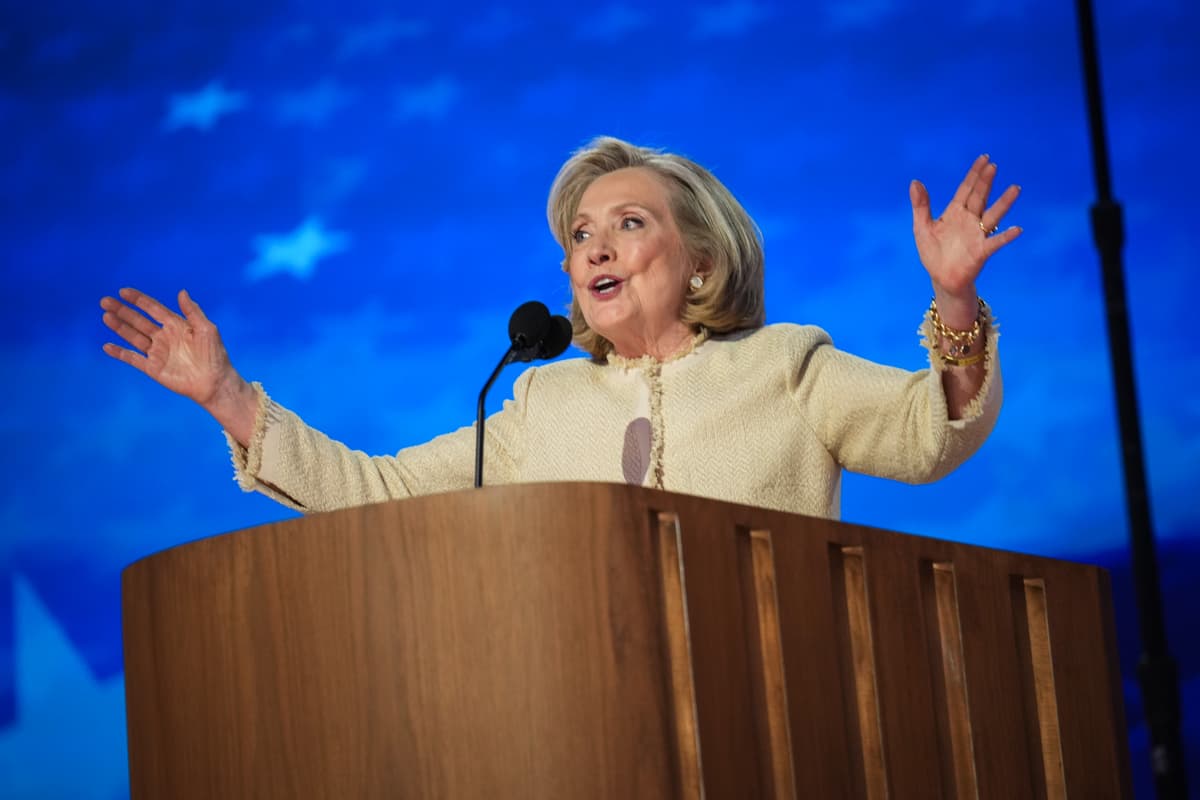Hillary Clinton’s Envoi
If the Democrats want a unifying theme, there’s a bit of history they’ve overlooked.

The decision of the Democrats effectively to banish President Biden from the convention strikes us as an error. Yet there last night was the 46th president, droning on in the wee hours, when the base of his voters was asleep in front of their own televisions. Whom did they get in prime time? None other than Secretary of State Clinton, reminding the country of why it voted in 2016 to flee her glass ceiling and put Donald Trump in the White House.
We’re not suggesting that Mr. Biden should have been the center of attention at the convention he essentially convened. Even if he is the actual president. Lyndon Baines Johnson, after all, didn’t even attend the Democratic Convention in 1968 after he declared that he would not run or accept any nomination. What catches our attention in the moment is the tinniness of the Democratic ear in giving Mrs. Clinton the plum time slot.
What did she do with it? That very morning Politico issued a long — and, we thought, shrewd — dispatch under the headline “Kamala Harris is making one big strategic break from Hillary Clinton.” She is not, it added in a subheadline, “highlighting the historic nature of her candidacy.” Meaning, as Politico put it, that she was focusing instead on her middle-class upbringing and prosecutorial track record.
“It’s a marked departure from Hillary Clinton, the first female Democratic presidential nominee, who highlighted her gender throughout her 2016 run, immortalized in white pantsuits, the Javits Center glass ceiling and the slogan: ‘I’m With Her.’” That’s the slogan President Trump marked by saying that her slogan might be “I’m With Her,” but his slogan was, “I’m with you.” Yet Mrs. Clinton delivered a speech about what it all means for women.
“He has been democracy’s champion at home and abroad,” she exaggerated. “He brought dignity, decency, and confidence back to the White House, and he showed what it means to be a true patriot.” Then she said, “Thank you, Joe Biden, for your lifetime of service and leadership.” Then she said the party was writing what she called a new chapter in America’s story.
Mrs. Clinton also talked about how, in 1984, she brought her daughter to see Geraldine Ferraro become the first woman nominated for vice president. That wasn’t an inapt point. That evening nine elections ago we’d had dinner with President Reagan’s ambassador to the United Nations, Jeane Kirkpatrick, and her husband at the American suite in the Waldorf. At one point, she moved us to the living room and turned on the television.
So we watched Mrs. Kirkpatrick, a Democrat in a Republican administration, watch — absolutely rapt — as Mrs. Ferraro gave the speech that, had history taken a different turn, Mrs. Kirkpatrick might have given. Yet that moment was a generation ago. Which is why, we suspect, Ms. Harris made the strategic decision to which Politico alludes. Secretary of State Clinton, meantime, failed to mention one of the salient facts about women’s long campaign.
It is that equal suffrage saw Republicans in the van. “If it happens that the amendment is added to the Constitution next winter, then every woman citizen in America over the age of 21 will be permitted to vote for the Presidential electors on November 5, 1920,” the Sun editorialized back in 1919. “If gratitude for the gift of suffrage should be an element at the polls that day, then the Republican party would have nothing to worry about.”
The Sun went on to note that the “suffrage resolution” received in the House “the yeas of 201 Republicans and 101 Democrats and the nays of 70 Democrats and only 19 Republicans. In the Senate the yeas came from 36 Republicans and 20 Democrats; the nays from 17 Democrats and only 8 Republicans. The Republicans of Congress supported the measure by nearly 9 to 1; the Democrats by less than 3 to 2.” It would have been a nice point for Mrs. Clinton to have included were she wanting to strike a note of unity.
________
This editorial has been revised from the early edition to improve the ending.

